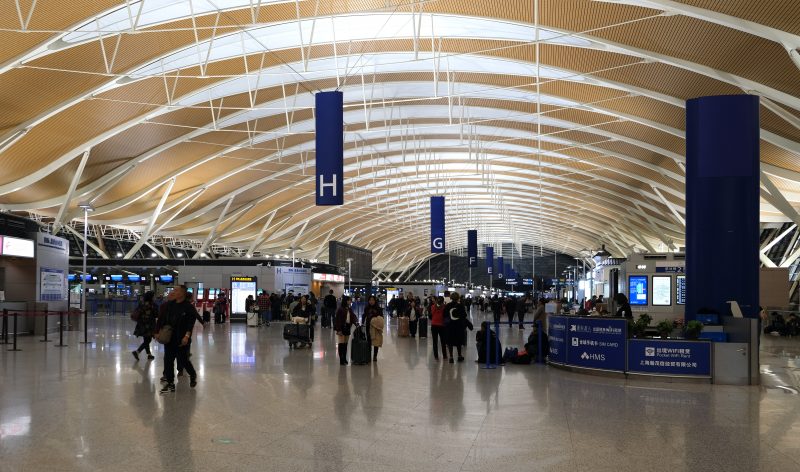PVG operations remain strain as covid-19 lockdown extended
Operations at Shanghai Pudong International Airport (PVG) remain constrained as it largely handles pre-lockdown air cargo and supply chain operations are still limited.
This is according to the latest advisory from UK-based logistics, freight forwarding & supply chain specialist Woodland Group.
Commenting on how Shanghai is coping with its extended Covid lockdown, Woodland said PVG is ‘open and operational’ but added “freight being handled is mainly clearing of cargo that was delivered pre-lockdown”.
The airport continues to see the impact of the city-wide lockdown in Shanghai, with Woodland noting there is a “shortage of trucks available to deliver cargo to the airport”.
Efforts to keep the workforce active at the airport include some terminals provided sleeping facilities, however, with a number of workers locked down at home there is still an operational impact, added Woodland.
Meanwhile Shanghai-headquartered electric vehicle company Nio said it was suspending production and delaying delivery of its cars after suppliers in Shanghai, Jiangsu and Jilin stopped production due to the pandemic.
Guangzhou has also enforced new Covid restrictions after cases rose in the city. This is expected to hit the automotive, petrochemical, and, electronics industries based in Guangzhou, further adding to supply chain delays and bottlenecks.
The airfreight industry is continuing to monitor capacity and rates, prompting UK-based Westbound Logistics Services to assesses whether the industry should prepare for high rates to be the new normal.
Westbound said that even if the wider world can meet the challenges presented by the pandemic, “it is impossible to see everything returning back to pre-covid levels in the next couple of years, if at all”.
It added: “To hang on to a hope of significant rate reductions in the short to medium term is almost certainly a flawed business strategy”.
The Asia market, to both Europe and North America, has been the most affected by airfreight rates in the past two years.
In addition to Covid, supply factors contributing to the high rate levels include port congestion, equipment turnaround and schedule disruption. “For example, Northern China is currently experiencing a higher degree of equipment shortages and therefore rates are significantly higher than the rest of China,” said Westbound.
It added: “Demand may also impact rates levels as we move forward in the months to come, these include a lack of low value product volumes, alternative sourcing and inflation.”
To add to this, North America is battling both port and warehouse congestion, while European trade is still seeing the fallout from Brexit.














